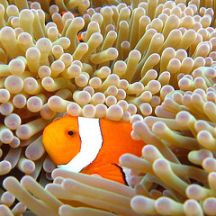Hardness is the amount of dissolved minerals such as calcium, magnesium, iron, and zinc.
In most water, it consists mainly of calcium and magnesium salts, with trace amounts of other metals.
If you water has a high concentration of minerals, it is said to be hard. If it has low levels, it is soft water.
Negative molecules that are typically found in saltwater that act as buffers are called carbonates and bicarbonates.
There is a specific kind we call carbonate hardness that you need to measure in your saltwater.
Checking carbonate harndess (alkalinity)

Measuring carbonate hardness is referred to as measuring the alkalinity. Dont get this confused though with a pH measurement that is alkaline.
Yes, carbonate hardness affect pH, but youre not measuring pH.
Carbonate hardness can be measured with a standard test kit. It may be called an alkalinity test kit.
- Contains one (1) API CARBONATE HARDNESS TEST KIT Aquarium Water Test Kit, including 1 bottle of testing solution, 1 color card and 1 test tube with cap
- Helps monitor water quality and prevent invisible water problems that can be harmful to fish and plants and cause fish loss
- Accurately measures carbonate hardness in freshwater and saltwater aquariums
- KH (Carbonate Hardness) stabilizes aquarium pH.
- Use weekly for monitoring and when water or fish problems appear
It is usually reported in milli-equivalents per liter (meq/L). The level in your aquarium should be greater than 3.0 meq/L.
How to adjust carbonate harness (alkalinity)
If the buffering capacity is below the recommended level, adjustments should be made. Your pH will be decreasing as well if alkalinity is not in the normal range.
The solutions for adjusting your pH are also used to increase the carbonate hardness (alkalinity).
Water change
When you remove the old water with fresh buffered saltwater (not fresh water!), the buffering capacity will increase. This is the first step.
See this page for more information on water changes.
Test the water again after about a day. If the carbonate hardness is still low, follow the next two steps.
Use a commercially manufactured aquarium buffer.
Its available at most aquarium dealers. It buffers the aquarium water if you use it properly. Make sure you follow the manufacturers instructions.
Kalkwasser
Add a solution of calcium hydroxide kalkwasser. This will increase the buffering capacity (alkalinity) of your water.
- PURE: Reef Kalkwasser is a pure calcium hydroxide with unmatched purity and solubility characteristics.
- MAINTAIN: Calcium hydroxide is used to prepare limewater (kalkwasser) solutions that will maintain calcium concentrations at natural sea water levels. Kalkwasser solutions maintain calcium directly and carbonate alkalinity indirectly.
- CAPACITY: Reef Kalkwasser’s capacity to perform these functions is dependent on evaporation rate and CO2 concentration.
- USE: If evaporation rate and CO2 concentration are insufficient you can provide additional calcium with Seachem’s Reef Advantage Calcium, Reef Complete, or Reef Calcium, and carbonate alkalinity with Reef Builder or Reef Carbonate.
- DIRECTIONS: Never add this product directly to the tank. Add 3g (1 teaspoon) to 4L (1 US gallon) of water and mix to dissolve. If using pure water, a fully saturated solution is prepared by adding 6g (2 teaspoons) to 4L (1 US gallon). Drip solution into tank. Beware of overdose and use only what is needed to maintain desired calcium level.
Return from Carbonate Hardness to Most Often Tested Water Parameters
Return to Saltwater Aquarium Online Guide Main Page
* Disclaimer: Saltwater-Aquarium-Online-Guide.com is a participant in the Amazon Services LLC Associates Program, an affiliate advertising program designed to provide a means for sites to earn advertising fees by advertising and linking to amazon.com, amazon.co.uk, amazon.ca. Amazon and the Amazon logo are trademarks of Amazon.com, Inc. or its affiliates. We may receive a small commission if you click on one of our links and make a purchase. Thank you for supporting Saltwater-Aquarium-Online-Guide.com and helping me make it the best site possible!
Last update on 2024-04-24 / Affiliate links / Images from Amazon Product Advertising API




